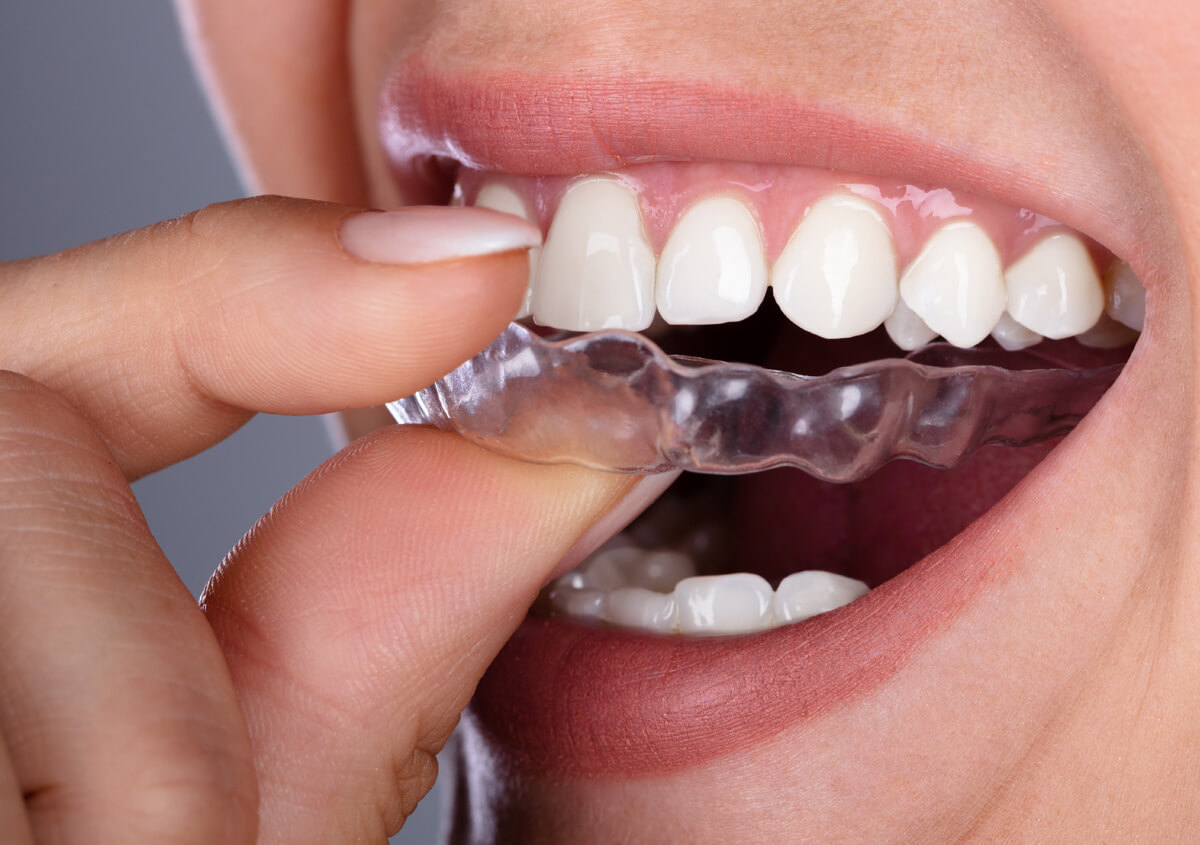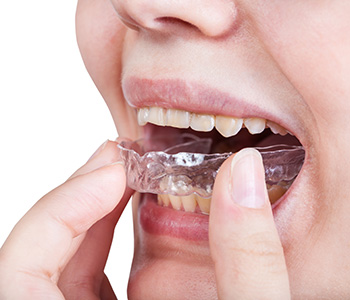Brookline dentist suggests night guards to reduce dental trauma
 Over the course of a lifetime, teeth are subjected to tremendous stress and abrasion. Brookline dentist, Dr. Stan Kovtun, often recommends night guards as a simple solution. This proactive and cost-effective approach to tooth preservation is part of Alpha Plus Dental Center’s biological philosophy of patient care.
Over the course of a lifetime, teeth are subjected to tremendous stress and abrasion. Brookline dentist, Dr. Stan Kovtun, often recommends night guards as a simple solution. This proactive and cost-effective approach to tooth preservation is part of Alpha Plus Dental Center’s biological philosophy of patient care.
When night guards are needed
A night guard is an oral appliance that fits over the upper or lower arch of teeth. Its purpose is to reduce strain on jaw joints and minimize stress on teeth. Dental mouth guards are inserted (after teeth are brushed and flossed) before falling asleep, then removed in the morning. You simply brush the guard lightly or give it a swish in natural herbal mouth rinse to keep it clean and fresh.
Dr. Kovtun may suggest dental night guards for patients who have a hereditary tendency toward soft tooth structure, or those who are bruxers. The average adult bites down at about 150 to 200 pounds per square inch when chewing. Generally, teeth, bones, and connective tissues easily withstand this repeated force. A person with bruxism, however, clenches the jaws, grinds, or gnashes teeth at a much higher PSI, and with greater persistence, resulting in discomfort, dental trauma, and costly repairs. Bruxism is separate from the normal oral functions of speaking and eating. It is estimated that more than 30 percent of our population (children and adults) have this condition. While some people brux when awake, nocturnal bruxism is more common.
The underlying causes of bruxism are not yet fully understood, but subconscious habit and truly involuntary factors include:
- Emotional stressors resulting from work pressures, financial concerns, and relationships
- Teething and earache in young children
- Oral habits related to nail-biting, tongue thrusting, and cheek biting
- Sleep position – lying face up seems to foster bruxing
- Sleep abnormalities triggered by the central nervous system
- Sleep apnea and other sleep-disordered breathing conditions
- Nicotine, certain medications, and other substances that stimulate the release of dopamine
Regardless of the cause of bruxism or contributing factors, teeth night guards help to protect your smile. Beware, though – all night guards are not equal.
Fabricating nightguards that fit properly
You can find dental night guards in many drug and department stores. They may come in a few standard sizes, have an adjustment feature, or mold somewhat to your mouth after being heated in boiling water. These (albeit very economical) guards present several problems, however. A device that does not fit properly and comfortably will not likely remain in your mouth through the night. It does no good under your pillow or on the floor. While an ill-fitting guard may provide some protection for your teeth, it can cause or aggravate TMJ problems. Lower-quality materials may deteriorate – chew through – quickly or contain unsafe levels of BPA.
Dr. Kovtun creates a nightguard that is as unique as your one-of-a-kind mouth. He takes physical or digital impressions of your mouth to create a stone cast. The guard is made from this mold for a precisely snug fit. The material and design provide comfortable resiliency yet result in a guard that is quite durable. Even the toughest bruxers typically get years of use from an Alpha Plus Dental Center night guard. Most importantly, the thermoplastic material Dr. Kovtun uses is BPA-safe. (You do not want bisphenol-A, a known toxin, next to mucosal tissues for extended periods of time.)
How night guards from this Brookline dentist save smiles
You could be a bruxer and not even realize it. Often, patients with unattractive or painful dental trauma are surprised to hear a sleep mate complain that, “Yes, that grinding noise he (or she) makes all-night drives me crazy!”
The following symptoms are generally warning signs that you should see Dr. Kovtun for a custom-fit night guard:
- Hypersensitive teeth – bruxing can inflame and damage nerves causing discomfort from hot or cold beverages, a breath of cold air, or sweets
- Sore jaw muscles
- Frequent headaches, especially upon waking
- Teeth that look worn down or chipped
- Damaged dental restorations – broken fillings or dislodged crowns or bridges
- Gum recession
- Fractured teeth
- Cracked tooth syndrome, characterized by “phantom” and intermittent toothaches
- A history of root canal treatment
A properly designed night guard serves three vital functions. First, it dissipates bite force, directly reducing the pressure that can damage tooth structures, from crown to root, and result in expensive dental work. Second, it gently repositions the mouth to reduce tension on jaw joints. Third, with regular use, the guard trains you to maintain a healthier oral posture, with lips closed but teeth slightly apart. This habit transfer to daytime, as well.
A holistic approach to wellness
Your oral cavity is a crucial aspect of your entire physiology. It supports brain function by allowing respiration and nutrition, and the impact of oral dysfunction can be felt throughout the body. Curbing bruxism with a night guard is a non-surgical, drug-free method of improving the body’s overall alignment. This treatment fits nicely into a comprehensive strategy of oral health and whole-body wellness. You might be surprised to discover that, while your night guard is saving your smile from wear and damage, it is also helping you to sleep better and feel better all over.












